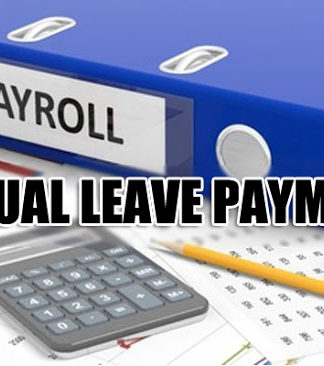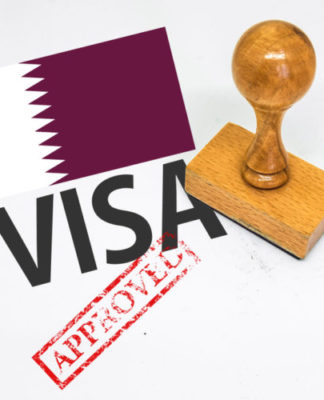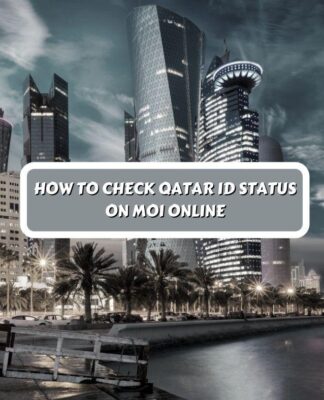To obtain a work permit, an employer in Qatar must sponsor you. You must obtain a work permit before applying for a Qatar Residence Permit, which makes it necessary to find a job before moving to Qatar. Alternatively, you can come to Qatar for a temporary period to search for a job on an Entry Visa.
Many ex-pats see finding a job in Qatar as a golden opportunity. Do it right and you could be in for an exciting international experience and a great salary with no tax. The helpful guide explains everything you need to know.
If you are thinking about finding work in Qatar, there are a few things you should know. This guide explains how to navigate the job hunt in Qatar and what you can expect from the process. It includes the following sections:
- Working in Qatar
- Requirements to work in Qatar
- How to find jobs in Qatar
- Self-employment and freelancing in Qatar
- Traineeships, internships, and volunteering in Qatar
- Applying for a job in Qatar
- Support while looking for a job in Qatar
- Starting a job in Qatar
- Useful resources
Working in Qatar
Finding a job in Qatar requires you to have a basic understanding of the country’s job market and Qatari work culture. Here are a few things you should know before you begin your search.

The job market in Qatar
The current unemployment rate in Qatar is 0.1%. This is because there are many jobs available and anyone looking for work in the country has a good chance of becoming employed. The economy is fast-growing and the country’s GDP was nearly $9 billion in 2018.
Oil and gas is the largest industry in the country. As such, if you are looking for a job in Qatar, this is the best industry to be in. However, manufacturing is also a large industry, as are finance, insurance, and real estate. Similarly, building and construction are two of the biggest industries for employment in Qatar. This is especially true in the lead up to the 2022 FIFA World Cup, which will be held there. However, it is expected that this particular industry will experience a slowdown after this landmark event.
Many large multinational companies have offices in Qatar. These include Shell, ExxonMobil, BNP Paribas, HSBC, and Standard Charted. However, there are many large local companies, too. These include Qatar Petroleum, Woqod, Qatar Steel, and Msheired.
Job vacancies in Qatar
Right now, Qatar’s construction industry is booming as the country prepares to host the 2022 World Cup. There are also many projects around Qatar’s 2030 vision deadlines. Because of this, there is a huge demand for laborers in the country.
Hospitality and tourism are also two industries that have huge growth potential. Therefore, if you are trying to find a job in Qatar, these are two great industries to be in. The government is trying to push these as an alternative income source so that the country is not so heavily reliant on oil. As such, it invested $17 billion in 2008 to create new infrastructure projects to support this. Hotels and restaurants are constantly recruiting, so look to these for jobs in Qatar.
Salaries in Qatar
Currently, the minimum wage in Qatar is QAR750/month. However, in late 2019, the government announced that it will shortly adopt new minimum wage laws.

Despite this, salaries are high in the country, which is the primary attraction for expats looking for work there. The average salary in Qatar is around QAR13,000/month. However, these can range hugely. Salaries can be as low as QAR1,200/month or as high as QAR90,000/month. Below, you will find some average expat salaries for different jobs:
- CEO of a multinational company: QAR121,322–QAR156,635/month
- Human Resources Manager: QAR34,752–QAR45,868/month
- IT Manager: QAR43,436–QAR57,287/month
- Event Manager: QAR18,377–QAR29,130/month
- Lawyer: QAR34,245–QAR44,172/month
- GP Doctor: QAR33,972–QAR42,966/month
- Bank Branch Manager: QAR29,468–QAR47,867/month
- PR Manager: QAR27,164–QAR36,547/month
Work culture in Qatar
Because there are so many expats in Qatar, the work culture brings together diverse styles and attitudes from all over the world. In some ways, this international environment can be very exciting and tolerant. However, Qatar is a Muslim country, therefore you can expect a more conservative working style. Another facet of this is that the work culture is very hierarchical and patriarchal, which is something to be aware of.

There are local idiosyncrasies that you should be aware of, too. For example, personal relationships are the key to business in Qatar. Because of this, you will need to build a rapport with your colleagues and business associates. In addition, while English is the main business language, knowing a little Arabic goes a long way. Something to note is that punctuality is not considered that important in Qatar, and you should expect a relaxed attitude toward timekeeping.
Labor laws and labor rights in Qatar
Qatar has several labor laws that are designed to protect employees. You should be aware of these before you begin finding a job in Qatar. Below are a few employee rights you should be aware of:
- Employees should not work more than six days a week or 10 hours a day. Additionally, you should receive overtime pay after eight hours;
- If a company terminates an employee before the end of the contract, they have to pay an End of Service Benefit. However, this only applies if the termination is without cause;
- Companies must provide private health insurance for foreign employees;
- Employees receive indemnity pay at the end of their contract. This is usually 15-20 days’ salary over the first three years or a month’s salary for every year after that;
- Most employees are entitled to three or four weeks’ annual leave;
- Employees are also entitled to up to two week’s sick leave at full pay.
In addition to all of the above, many foreigners receive extra benefits. These vary depending on the contract. However, they can include the following:
- Return flights to visit home;
- Housing allowance;
- Education for children;
- Company car.
Requirements to work in Qatar
If you are planning to work in Qatar, there are several hoops you need to jump through first. In general, though, these aren’t particularly difficult so you shouldn’t have too many issues.
Work visas in Qatar
All foreigners looking for work in Qatar must get a residency permit. However, you can only get this if an employer sponsors you. Generally, the company will get you a temporary visa to enter the country and then complete formalities once you are there.
Once you have an employer who can sponsor you, they will need to handle all the paperwork to get you a residency permit. If you received the job offer before entering the country, your employer must convert your temporary visa into a residence permit within two to four weeks.
These residence permits allow you to bring your family to Qatar, as well. They must be renewed each year by your employer, however.
Language requirements to work in Qatar
When it comes to jobs in Qatar, English is a must. This is the main language used for business in the country. However, it can be useful to have some knowledge of the Arabic language, too.

Qualifications to work in Qatar
In general, most companies in Qatar will expect you to have a university degree. However, if you are in a specialized profession, you may need professional qualifications. For example, lawyers, doctors, and teachers all need to show specific qualifications related to their jobs.
All qualifications must be notarized by the Ministry of External Affairs. Additionally, your degrees must be attested by the Qatar Embassy in your country. Furthermore, you will need to provide a detailed letter from your university or board confirming your qualifications.
Tax and social security numbers in Qatar
There is no personal tax in Qatar. As such, you will not need a tax number to work there. Similarly, foreigners cannot access the local pension schemes, so you will not have a social security number.
Other requirements in work in Qatar
In addition to all the above, there are a few things you may need in order to work in Qatar. For example, you will have to get a medical check. In some cases, you may also need a criminal record check. This is particularly the case for government jobs or licensed professions.
How to find jobs in Qatar
Now that you know what it takes to be able to work in Qatar, you need to begin looking for work. Finding a job in Qatar is much the same as it is in other countries. Online resources will be key to your job search, so make sure to take advantage of these.

Recruitment agencies in Qatar
If you already have a few years’ work experience under your belt, finding a job in Qatar may be easier if you go through a recruitment agency. There are many in the country, ranging from small local companies to huge international agencies. From overseas, you will do the best working with companies like Adecco, Robert Half, Michael Page, or Hays. Locally, you could try QHR, Al Noof, Bayt, Work Circle, and Gulfaar.
Job fairs and networking in Qatar
Like anywhere else in the world, finding a job in Qatar is easier if you are well-connected. Because of this, it is important to build a good network. You can do this by attending job fairs and networking events in the country. Many recruitment agencies and universities in Qatar host these, so keep an eye on their pages to find one that works for you.
Jobs in Qatari newspapers
Surprisingly, newspapers can be a good source if you are looking for work in Qatar. For instance, check out the classifieds in the Gulf Times and Qatar Tribune.
Looking for work online
As in any other country, finding a job in Qatar in the 21st century often revolves around the internet. As such, it is important to build a good profile on LinkedIn and look at what jobs are being advertised on the platform. Similarly, you can look at online job banks such as Monster Gulf and Gulf Talent.

In addition, if you have an idea of what companies you may like to work for, you can check their career pages directly. All the major oil companies, banks, and hotel organizations advertise jobs directly on their company websites, so keep an eye out for these.
Self-employment and freelancing in Qatar
It might be increasingly popular around the world, but freelancing is not common in Qatar. This is especially true for expats. This is because anyone who wants to work in Qatar requires a residency visa, and you cannot get this unless an employer sponsors you.
Traineeships, internships, and volunteering in Qatar
If full-time work doesn’t appeal, you could consider an internship or volunteering in Qatar. Many big companies in Qatar have internship programs. These include Shell, Qatar Airways, Woqod, DHL, the Qatar-America Institute, HSBC, and KPMG. You should note, though, that many of these companies only offer internships to Qatari residents.
Since many expats come to Qatar to work, volunteering tends to take a back seat. But, of course, there are opportunities available, should you wish to look for them. Below are some organizations to consider for volunteering:
- Supreme Committee for Delivery and Legacy
- Qatar Animal Welfare Society
- Al Shaqab
- Qatar Diabetes Association
- Reach Out to Asia (ROTA)
- Qatar Charity
- Ajyal Youth Film Festival
- Qatar Voluntary Center
Applying for a job in Qatar
Finding a job in Qatar can take time. However, once you have found some opportunities you like, you can begin the application process. In general, this is similar to what you will find in the rest of the world. You will send in a CV and cover letter. Next, you may have a telephone interview, followed by an interview in person. If you are successful, you may then receive a job offer and you will have to negotiate the details of your contract. On average, the whole process takes around four weeks, however, this can stretch to up to two months.

Before you begin looking for a job in Qatar, you will have to prepare your CV. This will not be drastically different from how a CV looks anywhere else. You will need to include your contact information at the top – don’t forget your email and phone number. Next, detail your professional experience and education. Because Qatar is such an international environment, language skills are key, so many sure you highlight these. It can also help to show a little personality by including what interests you have. Most importantly, your CV should be straightforward and concise. You will also need to include a cover letter with your application.
One thing to remember is that you will need to prepare appropriately for an interview. You should be culturally sensitive; act and dress appropriately. Additionally, it can be helpful to do some research about the company and its operations in Qatar.
Support while looking for a job in Qatar
Expats are not entitled to any unemployment benefits. Because of this, you should be prepared to support yourself while looking for a job in Qatar.
Of course, that doesn’t mean you can’t be productive while you’re on the hunt. You could improve your language skills by taking an English or Arabic class. It could also be helpful to improve any skills that may be relevant to your job. For example, you could get some training in SEO marketing, the Adobe creative suite, or leadership. There are many courses available online, and Udemy and Skillshare are the best resources for this.
Starting a job in Qatar
When you have finally found your dream job in Qatar, you will need to prepare for your new role. Make sure you and your employer are on the same page about your work visa, and don’t forget to get any criminal checks or health screenings you may need. Within your first few days, you should make sure you sign all the necessary paperwork, and that your company sets up your private health insurance.


























